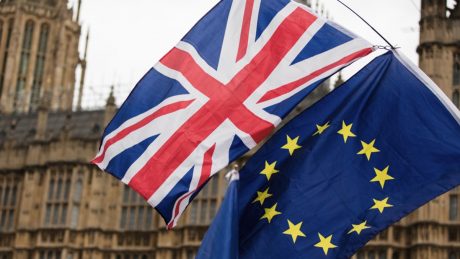The General Court of the Court of Justice of the European Union has upheld the Commission’s decision that the implementation of the Controlled Foreign Company (CFC) group financing exemptions constituted unlawful state aid.
The UK, along with a number of affected UK multinational groups, applied to the General Court to have the Commission’s decision annulled. The General Court rejected the UK’s application and upheld the Commission’s decision. Lee Ellis, Anastasia Nourescu and Jordan Coppin review the case of United Kingdom v European Commission T-363/19 and T-456/19, ECLI-EU-T-2022-349 here.
This article was first published by LexisPSL on 14 July 2022.
Critical to the General Court’s findings was its agreement with the Commission that the appropriate reference framework for determining whether the CFC exemptions constituted unlawful state aid was the CFC regime itself rather than the wider UK corporate tax system. The court’s reasoning for doing so is difficult to rationalise. It appears to rely on a distinction entirely of the Commission’s making between the “artificial diversion of profits” and a Member State’s entitlement to “protect its tax base”.
Also of particular difficulty are the court’s admittedly brief findings dismissing the UK’s arguments that the CFC exemptions could be justified on the basis of compliance with the freedom of establishment, as reflected in Cadbury Schweppes (C-196/04), which considered the UK’s previous CFC regime.
In practical terms, absent a successful appeal, the UK will have to retain the unlawful state aid it has recovered from UK-affected groups. UK-affected groups will undoubtedly now be considering whether to push the button on domestic proceedings previously put on hold.
What was the background?
On 2 April 2019, the EU Commission released a decision (SA.44896) concluding that the implementation of the CFC group financing exemptions in Chapter 9 of the Taxation (International and Other Provisions) Act 2010 constituted unlawful state aid.
The UK, together with ITV plc and others, applied to the General Court of the CJEU to annul the decision. The UK relied on four key arguments in support of its application:
- Firstly, the Commission erred when it held that the CFC rules provide the framework for the examination of comparability and that the proper reference framework is the wider UK corporation tax system.
- Secondly, the exemptions contained in Chapter 9 are not derogations.
- Thirdly, the UK should not have to rely solely on the “significant people functions” (“SPF”) test and should be able to rely equally on the joint operation of Chapters 5 and 9. Further, an SPF-based approach is equally complex to administer as an approach based on capital investment from the UK.
- Fourthly, the Chapter 9 exemptions do not grant a “benefit” to any company and do not, therefore, affect intra-EU trade. Instead, the exemptions provide a mechanism by which a CFC charge is imposed on UK-resident companies in only a limited number of cases.
On 8 June 2022, the General Court handed down a decision rejecting the UK’s application and upholding the Commission’s decision in its entirety.
What did the court decide?
The General Court dismissed each of the UK’s arguments and upheld the Commission’s decision that the CFC exemptions constituted unlawful state aid. Taking each issue in turn:
1. What is the correct reference framework?
The identification of the reference framework is the first step in any state aid assessment. The court found that the CFC rules are the correct reference framework. It agreed with the Commission’s finding that the CFC Rules constitute a complete body of rules, distinct from the general UK corporation tax system, even if they are an extension and not an exception to that system. The objective, it found, of these rules is to tax profits that are “artificially diverted” from the UK. In relation to the UK’s argument relating to the principle of territoriality of corporation tax within the UK and its entitlement to protect its tax base from profit shifting and base erosion, the court held that the CFC rules are based on a logically distinct part (or a “corollary”) of the general tax system and are therefore severable from it.
2. Do the CFC exemptions entail a derogation from the reference framework?
The second step is to test whether the measure at issue differentiates between operators in a legally and factually comparable situation, ie is selective. The General Court held that it could not be the case that by simply including a derogation within the same legislative text, Member States could state that an advantage does not exist. The court held this could not be right, as using this legislative technique would allow Member States to avoid applying state aid rules. The court also firmly rejected the UK’s argument that the rules are intended to protect the tax base of the UK from the erosion generated by the artificial diversion of profits from the United Kingdom. The court confirmed that by allowing 75% or the full exemption for financing income derived from qualifying loans, the UK provided a tax reduction compared to its “normal” tax system. The court further held that both qualifying loan relationships (“QLRs”) and non-QLRs are comparable since both types could give rise to non-trading finance profits as a result of SPFs carried out in the UK (and both can be justified by valid commercial reasons).
3. Is the derogation justified by the nature of the general scheme of the reference framework?
Finally, a Member State has the opportunity, within prescribed limits, to justify the relevant departure from the reference framework. The General Court rejected the UK’s argument that it is difficult to identify SFPs in the context of qualifying loans and the justification of the CFC exemptions for issues of administrative practicability. The court also rejected in brief and summary terms the UK’s argument that it adopted a reasonable approach to comply with Cadbury Schweppes Overseas (C-196/04) and the rules on freedom of establishment. The court held that Chapter 5 identifies artificially diverted profits, thereby being compliant with such rules without the need for Chapter 9 exemptions.
What are the practical implications of this case?
The decision is disappointing. While the UK amended its rules from 2019 onwards and has collected the unlawful state aid from the affected UK multinational groups, this is unlikely to be the final word. Further litigation before the EU courts and domestically is likely.
Indeed, it is hoped that the UK and/or the affected UK multinational groups will appeal the General Court’s decision, given the disappointing nature of the decision. While any appeal is limited to matters of law, there appear to be a number of matters on which an appeal could be based.
Domestically, UK-affected groups will be considering proceeding with their own appeals before the Tax Tribunal, in which a number seek to argue they have received no tax advantage. This is more likely now given the General Court’s decision that it was not for the Commission to consider individual cases and was for the UK to quantify the relevant tax advantage (ie unlawful state aid).
You can find further information regarding our expertise, experience and team on our Tax Litigation and Resolution pages.
If you require assistance from our team, please contact us.
Subscribe – In order to receive our news straight to your inbox, subscribe here. Our newsletters are sent no more than once a month.





